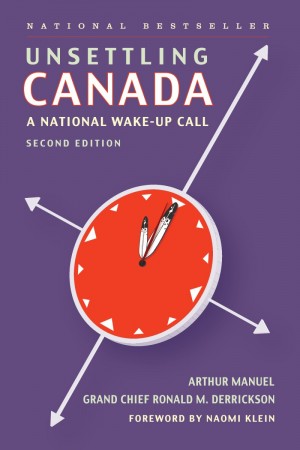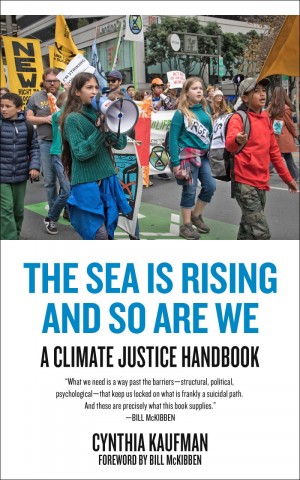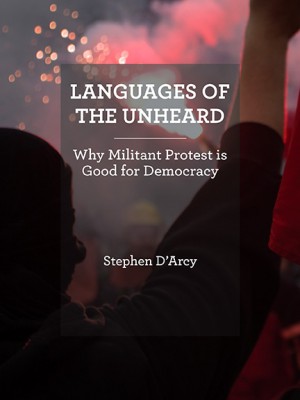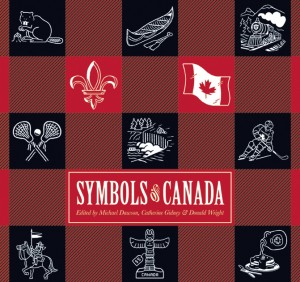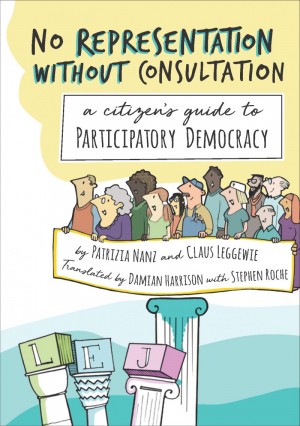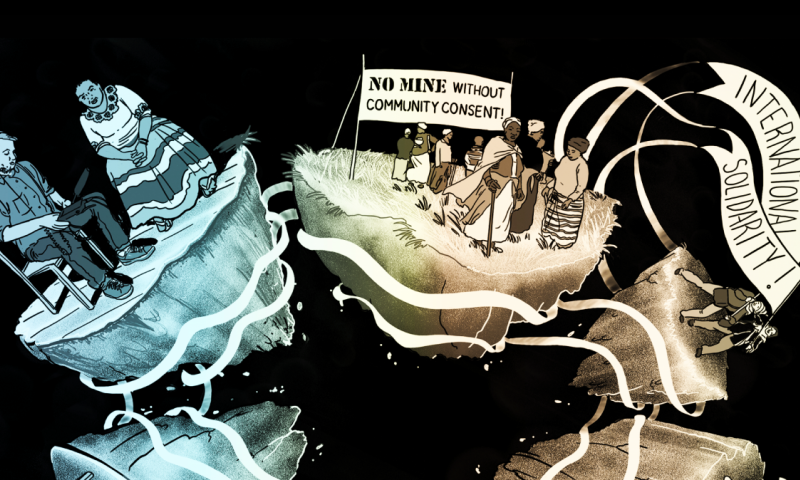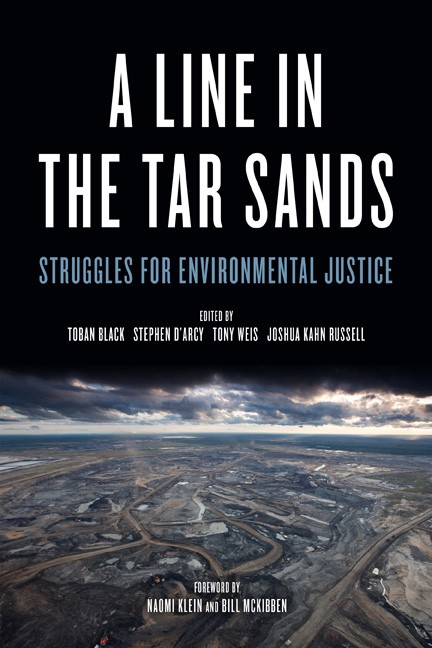
A Line in the Tar Sands
Struggles for Environmental Justice
Tar sands “development” comes with an enormous environmental and human cost. But tar sands opponents—fighting a powerful international industry—are likened to terrorists; government environmental scientists are muzzled; and public hearings are concealed and rushed.
Yet, despite the formidable political and economic power behind the tar sands, many opponents are actively building international networks of resistance, challenging pipeline plans while resisting threats to Indigenous sovereignty and democratic participation.
Featuring contributions from Winona LaDuke, Bill McKibben, Naomi Klein, Clayton Thomas-Muller, Harsha Walia, Jeremy Brecher, Crystal Lameman, Melina Laboucan-Massimo, Yves Engler, Cherri Foytlin, Macdonald Stainsby, Yudith Nieto, Greg Albo, Brian Tokar, Jesse Cardinal, Rex Weyler, Jess Worth, and many more.
The editors’ proceeds from this book will be donated to frontline grassroots environmental justice groups and campaigns.
Praise
A Line in the Tar Sands weaves a holistic story of the history of the tar sands, the growth of the environmental movement, and Indigenous peoples determined to stop this insidious development. It draws upon the science that warns society why the tar sands must be stopped and upon the philosophies of Indigenous peoples, whose teachings oblige us to defend the land and all living beings. This diversity of voices leads us to conclude that world leaders like Prime Minister Stephen Harper are colluding with corporations to defraud present and future generations of a healthy planet upon which to live.
– Katsi’tsakwas Ellen Gabriel, Indigenous Human Rights Activist, Turtle Clan from Kanehsatà:ke Mohawk Territory
This collaborative effort not only details the insanity of tar sands development, it also shines a light on the Indigenous-led resistance movement challenging the fundamentally exploitative paradigm underlying extreme energy extraction. It provides a model of genuine solidarity in the fight to replace oppression with a healthy and just world.
– Tim Dechristopher, Bidder 70
Tar sands are “the symbol and the thing” of all the pillars of the extractive economy —from finance capital to militarism—and the necessary assault on rights, sovereignty, and livelihood it requires. The antidote lies in the voices and visions of the diverse communities on the front lines of the fight. A Line in the Tar Sands elegantly connects migrant rights, human rights, rights of nature, indigenous sovereignty, and corporate concentration, and broadcasts a vision for ecological justice rooted in a healing movement of resistance, resilience, and restoration.
– Gopal Dayaneni, Movement Generation Justice and Ecology Project
Grounded learning comes from a cycle of action and reflection: we make change in the world, step back and assess our efforts, revise them, and then come back with more powerful and focused action. This is how our movements learn from one another and become more strategic and visionary. This book captures that action and reflection—it starts with organizers from different parts of struggle, offering their insights and learnings. They’re woven together in this anthology to offer new ways of understanding the interconnected crises we face and to build a tool for solidarity.
– Sharon Lungo, The Ruckus Society
Alberta tar sands oil, if fully exploited, will add enough carbon dioxide to the earth’s atmosphere to break the planetary carbon budget, unleashing untold, irreversible, worldwide ecological destruction. A massive, diverse people’s movement has arisen in response, drawing “a line in the sand” before the fossil fuel juggernaut. A Line in the Tar Sands is the indispensable guide to this frontline struggle on behalf of humanity and the earth.
– John Bellamy Foster, co-author of What Every Environmentalist Needs to Know about Capitalism
Opposition to the tar sands of Alberta and the pipelines that would carry their deadly crude has created one of the most potent civil society movements in our history. Led by grassroots and First Nations communities and fuelled by anger at the gutting of our freshwater heritage by the Harper government, this movement has the potential to change politics in Canada forever. Rich in detail and filled with hope, A Line in the Tar Sands tells the story of this movement and inspires a whole new generation to action.
– Maude Barlow, Council of Canadians
With NASA continuing to warn the world of impending doom, drought imperiling lives from Brazil to California, and all prospects looking bleak, A Line in the Tar Sands provides some hope that cultures of resistance, grassroots activism, and conscious militancy will prevail.
– Earth First Newswire
From Indigenous people’s sharing of prophecy, to locking downs and blockades, from marches to hip hop tours, from horseback rides to hunger strikes, and from mass arrests in front of the White House and Parliament to court battles, A Line in the Tar Sands examines the ongoing struggle to protect Sacred Water and Mother Earth through the voices and actions of the people who are living it. Read A Line in the Tar Sands and be heartbroken to learn the extent of the destruction of Mother Earth. Be inspired by the people working to stop the destruction.
– Debra White Plume, Moccasins on the Ground, Owe Aku International
In northern Alberta, the petroleum industry is engaged in the worst environmental crime in history. If business as usual continues in the tar sands, the world’s fast-warming climate will be pushed over the edge to disaster. A Line in the Tar Sands is essential reading about that crime, and about the growing movement to stop the tar sands criminals before they stop us.
– Ian Angus, editor of ClimateAndCapitalism.com, co-author of Too Many People? Population, Immigration, and the Environmental Crisis
The battle over Alberta bitumen pits malignant Petro-Capital against an inspiring and growing ensemble of activists. It has the feel of a Stalingrad in the war for a livable world: the stakes are that high. A Line in the Tar Sands tells this story superbly and with quiet passion. Here is a book for everyone who cares about the future.
– Joel Kovel, author of The Enemy of Nature
The most important stories in the tar sands struggle are hidden by the media. This revelatory book tells of Canadian duplicity, Chinese capital, migrant workers, healing ceremonies, movement reflection and strategy, EU lobbying, the contradictions of NGO politics, Indigenous activism, and much more. The story of Greenhouse Goo is global. But so is its resistance: beautiful, complex, and rich. A Line in the Tar Sands is drawn with hope and righteous anger, celebrating the cosmologies that the tar sands industry—and its politicians—would destroy.
– Raj Patel, author of Stuffed and Starved
Avoiding “game over for climate” requires drawing a line in the tar sands sludge. A Line in the Tar Sands makes clear why and how this tar sands quagmire could be the beginning of the end for the mighty fossil fuel industry.
– Dr. James Hansen, NASA
More and more people are realizing the Canadian tar sands are one of the most critical arenas in the global fight to unplug fossil fuels and transform our current dead end extractive economy model. A Line in the Tar Sands brings us powerful stories and strategic insights from the organizers who are turning the multi-pronged frontlines of the problem into the frontlines of the solution. Tap into the momentum of the movement that is making the defusing of the tar sands bomb an international priority. Whether you are new to the fight or a veteran organizer, this book is for anyone who is part of building a sane, just, hopeful future from the ground up.
– Patrick Reinsborough & Christine Cordero, Center for Story-based Strategy
[A Line in the Tar Sands is] the finest to date on the tar sands.
– UnderCurrents: Journal of Critical Environmental Studies
Contents
| List of Contributors | |
| Foreword | Naomi Klein and Bill McKibben |
| Introduction | Drawing a Line in the Tar Sands Tony Weis, Toban Black, Stephen D’arcy, and Joshua Kahn Russell |
| Part I | Tar Sands Expansionism |
| Chapter 1 | Petro-Capitalism and the Tar Sands Angela V. Carter |
| Chapter 2 | Assembling Consent in Alberta: Hegemony and the Tar Sands Randolph Haluza-Delay |
| Chapter 3 | The Rise of Reactionary Environmentalism in the Tar Sands Ryan Katz-Rosene |
| Chapter 4 | Canadian Diplomatic Efforts to Sell the Tar Sands Yves Engler |
| Chapter 5 | The Environmental Ngo Industry and Frontline Communities Dave Vasey |
| Chapter 6 | Canada’s Eastward Pipelines: A Corporate Export Swindle, Confronted by Cross-Country Resistance Martin Lukacs |
| Chapter 7 | Migrant Justice and the Tar Sands Industry Harsha Walia |
| Chapter 8 | Responding to Chinese Investments in the Tar Sands Harjap Grewal |
| Chapter 9 | New Beginnings: Tar Sands Prospecting Abroad Macdonald Stainsby |
| Part II | Communities and Resistance |
| Chapter 10 | Awaiting Justice: The Ceaseless Struggle of the Lubicon Cree Melina Laboucan-Massimo |
| Chapter 11 | ᑭᐦᒋᐱᑭᐢᑫᐧᐃᐧᐣ: Kihci Pikiskwewin—Speaking the Truth Crystal Lameman |
| Chapter 12 | The Tar Sands Healing Walk Jesse Cardinal |
| Chapter 13 | Petro-Chemical Legacies and Tar Sands Frontiers: Chemical Valley versus Environmental Justice Toban Black |
| Chapter 14 | Beyond Token Recognition: The Growing Movement against the Enbridge Northern Gateway Project Tyler McCreary |
| Chapter 15 | Culture Works Christine Leclerc and Rex Weyler |
| Chapter 16 | Lessons from Direct Action at the White House to Stop the Keystone XL Pipeline Joshua Kahn Russell, Linda Capato, Matt Leonard, Andrae Breaux |
| Chapter 17 | Gulf Coast Resistance and the Southern Leg of the Keystone XL Pipeline Cherri Foytlin, Yudith Nieto, Kerry Lemon, and Will Wooten |
| Chapter 18 | The Enbridge Pipeline Disaster and Accidental Activism along the Kalamazoo River Sonia Grant |
| Chapter 19 | Getting Europe Out of the Tar Sands: The Rise of the UK Tar Sands Campaign Jess Worth |
| Chapter 20 | Labour Faces Keystone XL and Climate Change Jeremy Brecher and the Labor Network for Sustainability |
| Part III | Future Prospects |
| Chapter 21 | Ending the Age of Fossil Fuels and Building an Economics for the Seventh Generation Winona LaDuke |
| Chapter 22 | The Rise of the Native Rights–Based Strategic Framework Clayton Thomas-Muller |
| Chapter 23 | Pipelines and Resistance across Turtle Island Sâkihitowin Awâsis |
| Chapter 24 | What Does It Mean to Be a Movement? A Proposal for a Coherent, Powerful, Indigenous-Led Movement Emily Coats |
| Chapter 25 | Expanding the Fossil Fuel Resistance Bill McKibben |
| Chapter 26 | Secondary Targeting: A Strategic Approach to Tar Sands Resistance Stephen D'Arcy |
| Chapter 27 | From the Tar Sands to “Green Jobs”? Work and Ecological Justice Greg Albo and Lilian Yap |
| Chapter 28 | Tar Sands, Extreme Energy, and the Future of the Climate Movement Brian Tokar |
| Acknowledgements | |
| Notes | |
| Index |

